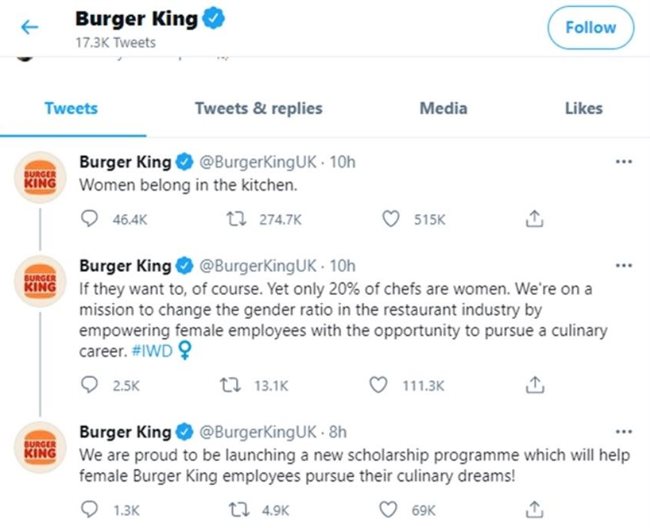According to the 2019 JOTW Communications Survey, only 59% of communicators have a communications strategy, while a mere 45% have a documented crisis communications plan. Furthermore, PWC’s Global Crisis Survey 2021 suggests that only 62% of business leaders used a crisis plan in their response to the ongoing pandemic. The figures are alarming, particularly given the impact of the pandemic on global business practices, and that in today’s digitally-driven world, anything and everything a brand conveys is placed under a microscope.
The digital influence on crisis management
Today, crisis management is more important than ever, compelling brands to be prepared and respond rapidly to a crisis at any given time. This is particularly important given that research by ConverSocial claims that 37% of consumers who use social media platforms to complain or question brands expect a response in under 30 minutes.
You can’t slap a band-aid on it
There are no quick fixes when it comes to crisis recovery. This is evidenced by Deloitte’s Global Crisis Management Report which indicates that fewer than 30% of C-Suite executives who’ve experienced a crisis say that their reputations recovered in less than a year, with 16% claiming it took four years or more. Financial and operational crises experienced similar long recovery times. The road to recovery is a long one, with 70% stating that it took more than a year for its corporate reputation to recover.
As one of a brand’s most valuable attributes, corporate reputation can make or break a brand for consumers. Here are three recent brand blunders that should never be repeated, proving that crisis management is important:
Burger King gets it all wrong on Women’s Day 2021
In celebration of International Women’s Day 2021, Burger King’s UK division tweeted that “Women belong in the kitchen” followed by two further tweets saying “if they want to, of course,” and the next announcing the fast-food chain’s new scholarship programme aimed at helping women attain a degree in culinary arts and reduce the gender gap in the restaurant industry.
What was meant to capture attention did so, but for the wrong reasons. While the campaign first appeared in print and was interpreted as ironic, using the same direction on social media simply does not have the same effect. Many looked past the subsequent tweets and fixated on the first, resulting in a backlash for a seemingly sexist statement that resulted in Burger King appearing completely tone-deaf.
The tweet was eventually deleted, and an apology was issued. While Burger King hoped the attention would spark interest and support for the scholarship program, for many, the damage was already done.
Volkswagen’s proverbial slap in the face
After Volkswagen’s infamous Dieselgate scandal a few years ago, one would think that the world’s largest automotive manufacturer would tread lightly. Well, think again.
In 2020, the German conglomerate posted a video on Instagram promoting its latest Golf 8, with a giant white hand flicking a Black person away from the car and into a restaurant by the name of Petit Colon - French for Little Colonist. Given that Volkswagen was founded in 1937 under the Nazi regime, one would assume that anything race-related be approached with extreme caution.
What ensued on social media was best described as an utter uproar, and the advert was swiftly removed and an apology was issued. It read, “No one from the team realised that flicking away a person is inappropriate on its own — and racist in the context shown. We should never have made a mistake like that. Neither the agencies nor we. We must apologise for that — with no ifs and buts. And ensure that something like it can never happen again.”
Snapchat gets a bad image
In 2018, social media platform Snapchat ran an advert created by a third party that was modelled after the game “Would You Rather.” Users were asked whether they would rather slap Rihanna or punch Chris Brown. While the incident occurred many years prior, in 2009, most haven’t forgotten about the domestic violence case between Rihanna and her then partner Chris Brown, and neither had she.
After an uproar across the social sphere, Snapchat was quick to pull the advert and issue an apology, however, the damage was already done. Issuing a statement on Instagram - Snapchat’s rival - Rihanna lambasted the platform, stating that it’s not about her own feelings, but those of the women, children and men who have fallen victim to domestic violence in the past.
Her sentiments rang true amongst her following, with company shares dropping almost 5% overnight, and reports indicating that Snapchat lost almost $800m after the incident.
Where to from here?
In today’s busy world, marketers need to take notes from the mistakes of others. From always proofing projects and campaigns to not falling out of touch with pressing issues and keeping abreast with current and past events will ensure they don’t become tone-deaf and apathetic.
According to Talkwalker, this can be achieved in seven steps:
- Prepare a crisis plan with holding statement templates from mocked scenarios
- Establish a crisis response team
- Get the facts
- Accept responsibility and apologise
- Choose the right channels for distribution
- Communicate your response or plan of action
- Monitor the crisis
There is an increasing need for more preparedness from brands today. Brands need to partner with the right agency to help you plan - from media training key spokespeople to the development of detailed issues and crisis frameworks coupled with in-depth escalation policies, social listening and an internal communications plan for our employees, our biggest advocates.
Need to ensure your brand doesn’t fall victim to any potential crisis or require help drafting a crisis plan? Send an email to info@eclipsecomms.com and one of our experts will be in touch.




































